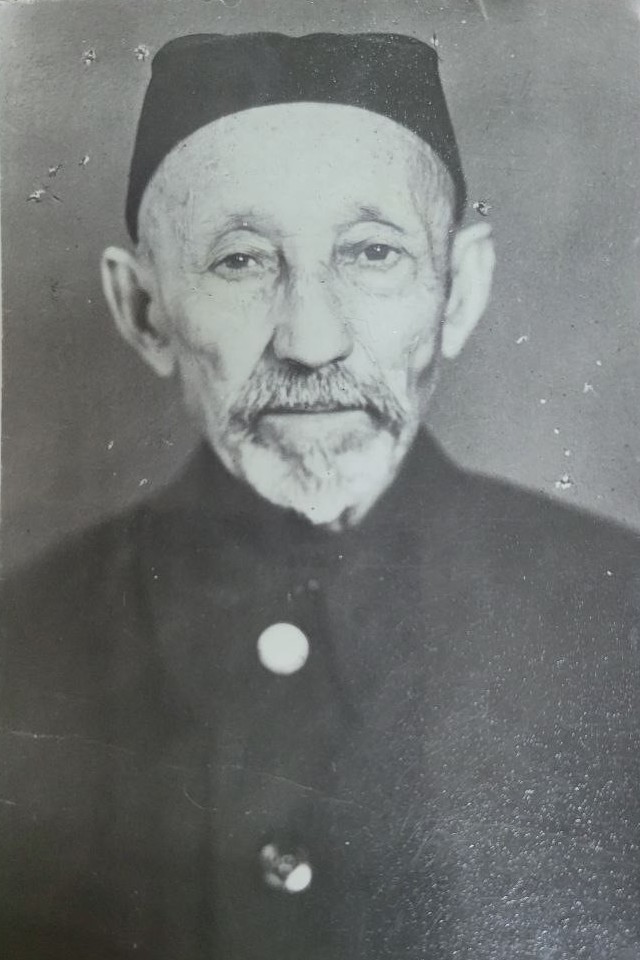
Abdulfattokh (Abd al-Fattah) Rasulov (1888-1977) was born in the Tashkent district of Shaikhantaur (Shaykh Khavandi Takhur), into the family of a gardener. He spent seven years (1910-1917) studying at a maktab and in the neighborhood madrasa, where he learnt Arabic, fiqh, kalam, Quran recitation, and the basics of tafsir, among other subjects. He continued his education with private tutors, including Ubaydallah Makhdum. Rasulov also learned calligraphy from mullah Muhammad-Amin Makhdum.
In 1918 Rasulov easily passed his entrance exams and was enrolled in an eight-month course to become a primary school teacher; according to Rasulov's own words, in the beginning these courses stil used some textbooks from the local madrasas, including the Chahar `amal ("Four [mathematical] Methods") and poetry collections of Bedil and Mashrab. Rasulov finished this course ahead of schedule and with honors. He then took part in a state program to eliminate illiteracy, teaching history, Uzbek grammar, and_ basic mathematics in several Tashkent schools.
Due to high inflation Rasulov quit teaching in 1923 and accepted a job in a building and construction brigade, which paid better. Rasulov later stated that this saved his family from starvation and him personally from the first purges of the "religious element" that began in the 1920s; as he wrote in his autobiography, "many other graduates of the madrasa disappeared." In 1942, Rasulov was drafted into the labor battalions of the Red Army.
In 1944 Rasulov left the army and was immediately invited to the Academy of Sciences. After an interview with Kary-Niazi, the first president of the Uzbekistan Academy of Sciences, he obtained the position of junior researcher and started work on September 1; his task was to work on the kartoteka and collect information from manuscripts about natural disasters (earthquakes, floods, droughts) in the republic's regions. In order to demonstrate "the importance of the Institute of Oriental Studies for the national economy of Uzbekistan," A.A. Semenov also charged him with collecting historical information on the cotton production in the country.
Starting in 1948 Rasulov was employed to translate a number of philosophical and medical works by Ibn Sina, al-Farabi, al- Biruni, and others. On the basis of his collected materials he was given, in 1962, the title of PhD (kandidat nauk), without dissertation; this was a unique precedent in the history of the institute. In his short autobiography of 1962 Rasulov remarked that:
"
work at the Institute of Oriental Studies and contacts with its scientific coworkers were for me a great source of knowledge. When producing fiches on books I got acquainted with a great amount of works, and learned about many authors whose names I had not even heard before. [...] Until the end of my days I will be grateful to my late father and my teachers for encouraging me to study. I am also grateful to my dear colleagues at the Institute. I and my offspring also thank the Party and the Soviet government for their care for the
people, for creating the conditions for my current work."
His thanks to Party and state he reiterated in almost al his published works. Next to working in the al-Biruni project, Rasulov also translated the important tenth-century Ta'rikh-i Narshakhi (1961) as well as the work of Mirza Qadir Bedil, Nugat.
For his longstanding and dedicated work Rasulov was awarded a distinction (pochetnaia gramota) of the Supreme Soviet of the Uzbek SSR in 1956; and in 1971 he obtained the Beruni State Award, together with the prominent scholars U. Karimov and B. Bulgakov, with whom he closely cooperated. Many Soviet scholars, including A.K. Arends, Ia.G. Guliamov, M.A. Sal'e, and P.G. Bulgakov, used to consult him with regard to difficult Arabic texts.
Abdulfattokh Rasulov passed away on January 1, 1977; the ritual prayer at his funeral (janaza) was read by the famous SADUM Mufti Ziya ad-Din Babakhanov.